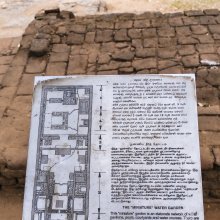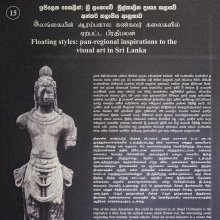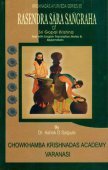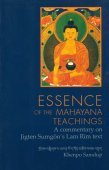Reflection: 1 definition
Introduction:
Reflection means something in Hinduism, Sanskrit. If you want to know the exact meaning, history, etymology or English translation of this term then check out the descriptions on this page. Add your comment or reference to a book if you want to contribute to this summary article.
Images (photo gallery)
In Hinduism
Vedanta (school of philosophy)
Source: ORA: Amanaska (king of all yogas): (Advaita Vedanta)The Reflection (of duality) is denoted by the Sanskrit term Ābhāsa, according to the Māṇḍūkyopaniṣatkārikā 3.29.—Accordingly, while discussing the dream and waking states: “Just as in the case of dreaming, the mind, which is a reflection (ābhāsa) of duality (dvaya), is active because of Māyā, so the waking mind, which is [also] a reflection (ābhāsa) of duality, is active because of Māyā”.

Vedanta (वेदान्त, vedānta) refers to a school of orthodox Hindu philosophy (astika), drawing its subject-matter from the Upanishads. There are a number of sub-schools of Vedanta, however all of them expound on the basic teaching of the ultimate reality (brahman) and liberation (moksha) of the individual soul (atman).
See also (Relevant definitions)
Query error!
Full-text (+1274): Pratibimba, Bimba, Dhyana, Manana, Pratiphala, Pradhyana, Cinta, Chaya, Vicara, Pratiphalana, Abhasa, Cintita, Paramarsha, Anitya, Vasaniya, Mimamsa, Patibimba, Pratibimbana, Preksha, Bhavana.
Relevant text
Search found 404 books and stories containing Reflection, Reflections; (plurals include: Reflections, Reflectionses). You can also click to the full overview containing English textual excerpts. Below are direct links for the most relevant articles:
Cidgaganacandrika (study) (by S. Mahalakshmi)
Part 12 - Uniqueness of reflection (pratibimba) < [Philosophy of Kashmir Tantric System]
Verse 240 [Kāli consumes Agni, who emerges from Sūrya] < [Chapter 4 - Fourth Vimarśa]
Verse 193 [Śakti as Māyā projects the limitations in manifestation] < [Chapter 4 - Fourth Vimarśa]
Tattvasangraha [with commentary] (by Ganganatha Jha)
Verse 257-258 < [Chapter 7 - Doctrine of the Self (ātman, ‘soul’)]
Verse 259 < [Chapter 7 - Doctrine of the Self (ātman, ‘soul’)]
Verse 261 < [Chapter 7 - Doctrine of the Self (ātman, ‘soul’)]
Brihad Bhagavatamrita (commentary) (by Śrī Śrīmad Bhaktivedānta Nārāyana Gosvāmī Mahārāja)
Verse 2.4.159 < [Chapter 4 - Vaikuṇṭha (the spiritual world)]
Verse 2.4.215 < [Chapter 4 - Vaikuṇṭha (the spiritual world)]
Verse 2.2.87 < [Chapter 2 - Jñāna (knowledge)]
Maha Prajnaparamita Sastra (by Gelongma Karma Migme Chödrön)
Third comparison or upamāna: The moon reflected in water (udakacandra) < [Bodhisattva quality 19: the ten upamānas]
Ninth comparison or upamāna: A reflection (bimba) in a mirror (ādarśa) < [Bodhisattva quality 19: the ten upamānas]
Part 3 - The non-existence of beings < [Chapter XXIII - The Virtue of Morality]
Vakyapadiya of Bhartrihari (by K. A. Subramania Iyer)
Verse 1.99 < [Book 1 - Brahma-kāṇḍa (or Āgama-samuccaya)]
Verse 1.49 < [Book 1 - Brahma-kāṇḍa (or Āgama-samuccaya)]
Verse 2.294 < [Book 2 - Vākya-kāṇḍa]
Preksha meditation: History and Methods (by Samani Pratibha Pragya)
4. Jaina Meditation < [Chapter 5 - Other Modern Forms of Jaina Meditation]
7. The Bhāvanā ascetic practices < [Chapter 2 - Pre-Modern History of Meditation in Jainism]
Related products





